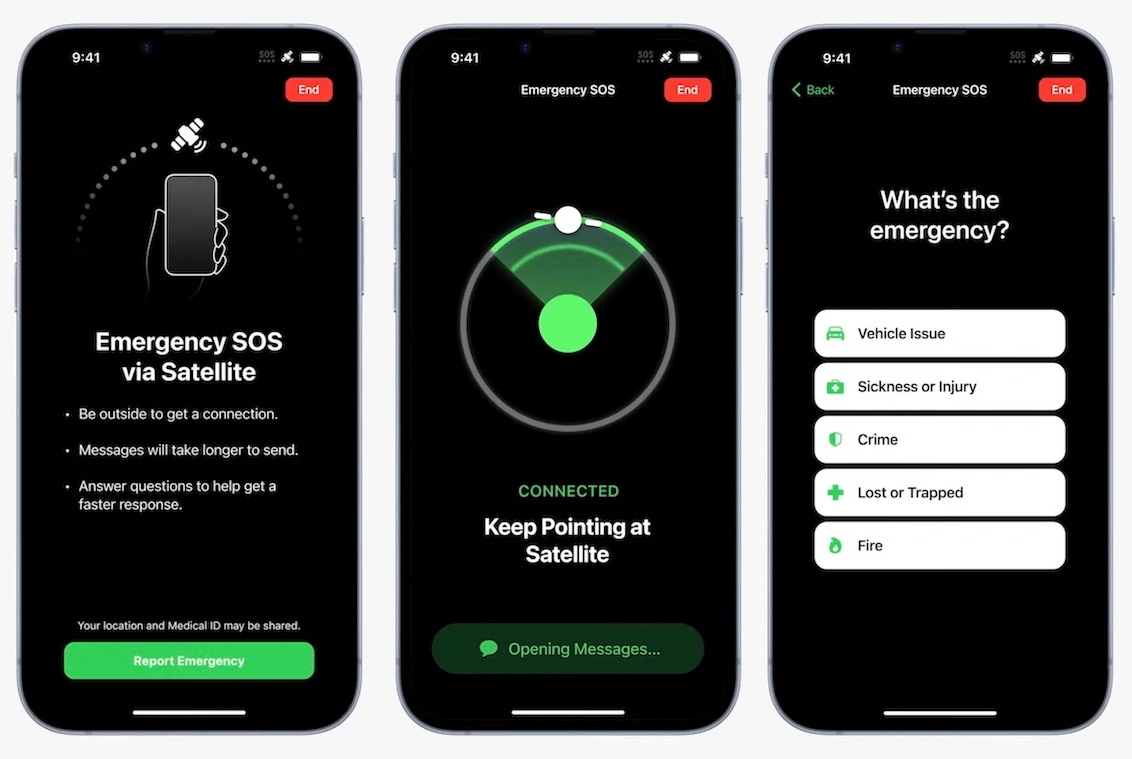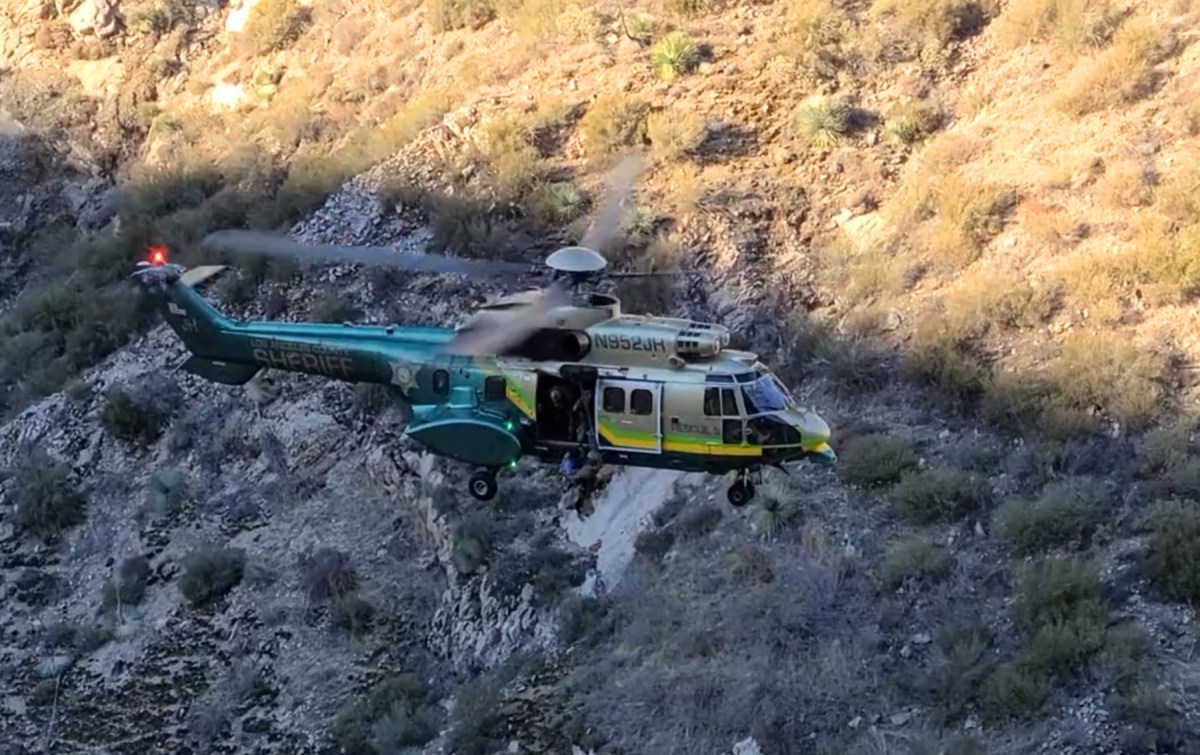Products You May Like
Apple’s new “Emergency SOS” service that lets off-grid iPhone users call for help via satellite has led to one of its first successful rescue operations, certainly the first to be documented live. (Another example in Alaska was only reported in a bulletin after the fact.)
As related by the Montrose Search & Rescue Team, which conducted the operation, two people were in a vehicle driving through the Angeles National Forest yesterday afternoon when their car went off the road and “off the side of the mountain, approximately 300′.” The impact was serious enough to strip the front bumper off the car, which seems to have then tumbled or slid into a narrow valley well below the highway.
LASD Sergeant John Gilbert, who was part of the rescue operation, said it was amazing they survived at all.
“This area is a very steep, narrow canyon. Normally when people go over in this area, it’s a fatality,” he said. “It’s not easy to climb out of there, and it was going to be a 30-degree night. And you can’t see where they crashed from the roadway.”
Injured and with no cell coverage (they were about 19 miles into the forest) and possibly injured, the pair made the decision to try out the new satellite communication service introduced in September for the iPhone 14 and 14 Pro.
The service requires users to point their phone at a passing partner satellite, and when a connection is established, their location is sent along with any circumstances, like whether someone is hurt. The message goes to a relay service, which then passes it to the appropriate authorities — in this case LA County fire department, sheriffs, and the SAR team in Montrose.

Image Credits: Apple
Sgt Gilbert confessed himself baffled again at the couple’s luck.
“When we respond out there, our radios don’t work well; we have satellite phones but in that area it’s very spotty, and we’re doing it from the roadway,” he explained. “I don’t know if it was plain luck, maybe the satellites were just in the right orientation at the moment, but they were able to have more consistent communications than we experience in that canyon.”
Whatever the case, the phone, despite being pretty bashed up in images provided to local news outlets, worked like a charm.
“The call center gave us an accurate latitude and longitude for the victims,” wrote the rescue team. “[Helicopter] Rescue 5 was able to locate the victims and insert a paramedic. The paramedic learned the patients, a male and female in their 20s, had mild to moderate injuries. The helicopter was able to hoist the victims out of the canyon and transport them to a local area hospital.”
(The couple is soliciting donations for their hospital bills in a GoFundMe if you’re feeling generous.)
Apple’s service is just one of several ways people may soon be able to use satellites directly from their phones. Lynk promises a regular exchange of data for SMS and emergency alert purposes, and T-Mobile is partnering with Starlink to enable something like that for subscribers as well.
